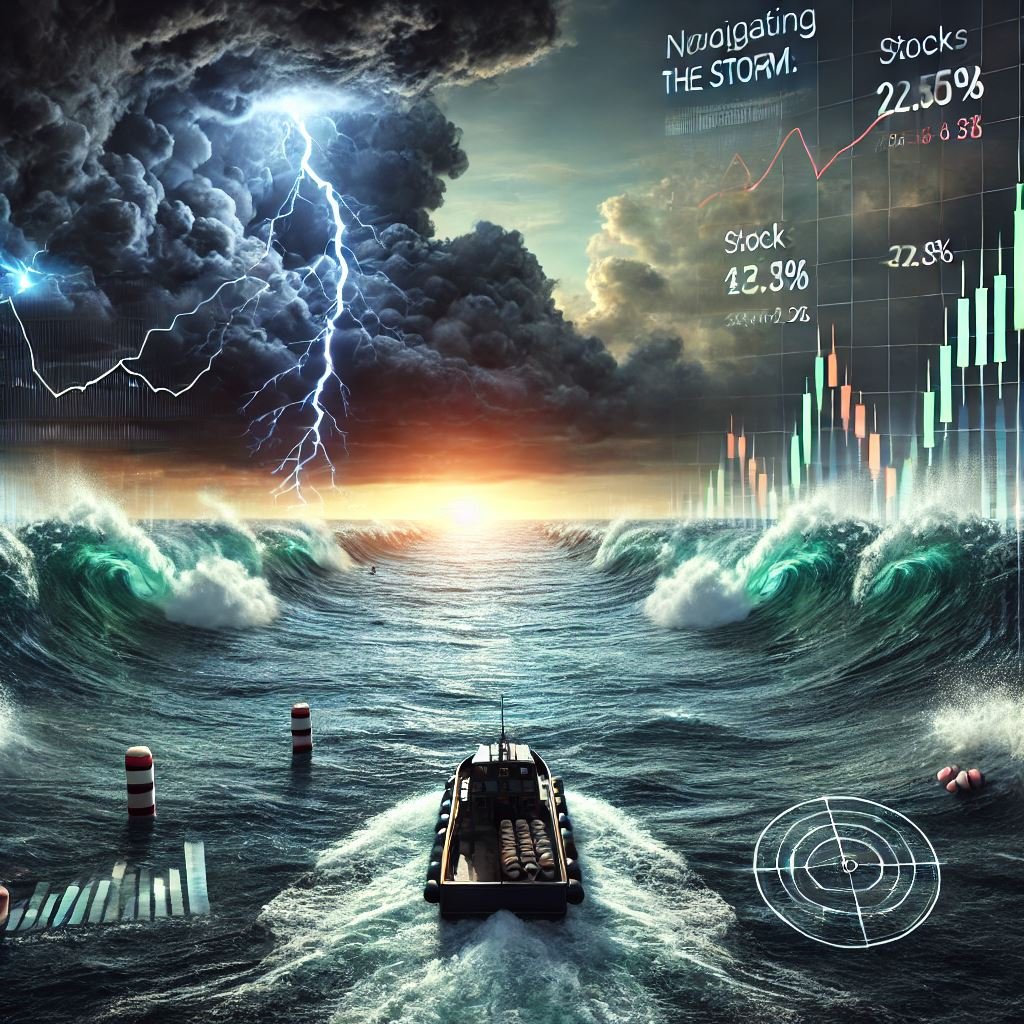Navigating the Storm: The Impact of Geopolitical Events on Financial Markets
Introduction
In today's interconnected world, geopolitical events have a profound impact on global financial markets. From wars and elections to trade agreements and policy changes, these events can cause significant volatility and uncertainty. Understanding how these events influence markets is crucial for investors looking to navigate the ever-changing landscape. In this blog, we'll analyse the impact of major geopolitical events on financial markets and provide insights on how investors can manage these uncertainties.
The Influence of Geopolitical Events
Geopolitical events refer to major political and economic developments that have a significant impact on the global landscape. These events can range from conflicts and wars to political transitions, trade disputes, and policy changes. They often have far-reaching consequences, shaping the political, economic, and social dynamics of countries and regions.
Wars and Conflicts
Wars and conflicts are among the most disruptive geopolitical events. They can lead to significant market volatility, as investors react to the uncertainty and potential economic impact. For example, the Russian invasion of Ukraine in 2022 caused global markets to fluctuate, with investors seeking safe-haven assets like gold and government bonds. The ongoing Israel-Hamas conflict has also had a similar impact, affecting global markets and oil prices.
Elections and Political Transitions
Elections and political transitions can also influence financial markets. Changes in government policies, leadership, and regulatory frameworks can create uncertainty and affect investor sentiment. For instance, the 2016 US presidential election led to significant market movements, as investors reacted to the potential policy changes under the new administration.
Trade Agreements and Policy Changes
Trade agreements and policy changes can have a profound impact on financial markets. Changes in trade policies can affect global supply chains, tariffs, and economic growth. For example, the US-China trade war led to market volatility and uncertainty, as investors grappled with the potential economic impact of tariffs and trade restrictions.
Navigating Geopolitical Uncertainties
While geopolitical events can create significant market volatility, investors can take steps to navigate these uncertainties:
Diversification: Diversifying investments across different asset classes, sectors, and regions can help mitigate the impact of geopolitical events. A well-diversified portfolio can reduce risk and enhance returns.
Stay Invested: History doesn’t repeat itself but it often rhymes. Today’s news may sound new and more urgent than in the past but markets have usually weathered much worse and recover quickly - stay invested or you’ll miss the bounce.
Long-Term Focus: Maintaining a long-term investment perspective can help investors weather short-term market volatility. Historical data shows that markets tend to recover from geopolitical shocks over time.
Safe-Haven Assets: Investing in safe-haven assets like cash, government bonds, and defensive stocks can provide stability during periods of geopolitical uncertainty. These assets tend to perform well when markets are volatile.
Risk Management: Implementing risk management strategies, such as a crash insurance strategy, can help protect investments from significant losses during geopolitical events.
Summary
Geopolitical events have a significant impact on financial markets, often causing volatility and uncertainty. By understanding the influence of wars, elections, trade agreements, and policy changes, investors can better navigate these challenges. Diversification, staying informed, maintaining a long-term focus, investing in safe-haven assets, and implementing risk management strategies are key to managing geopolitical uncertainties. By adopting these strategies, investors can make informed decisions and build resilient portfolios in the face of geopolitical risks.
If you have any questions arising from this article then do not hesitate to get in touch by clicking on the button below.

